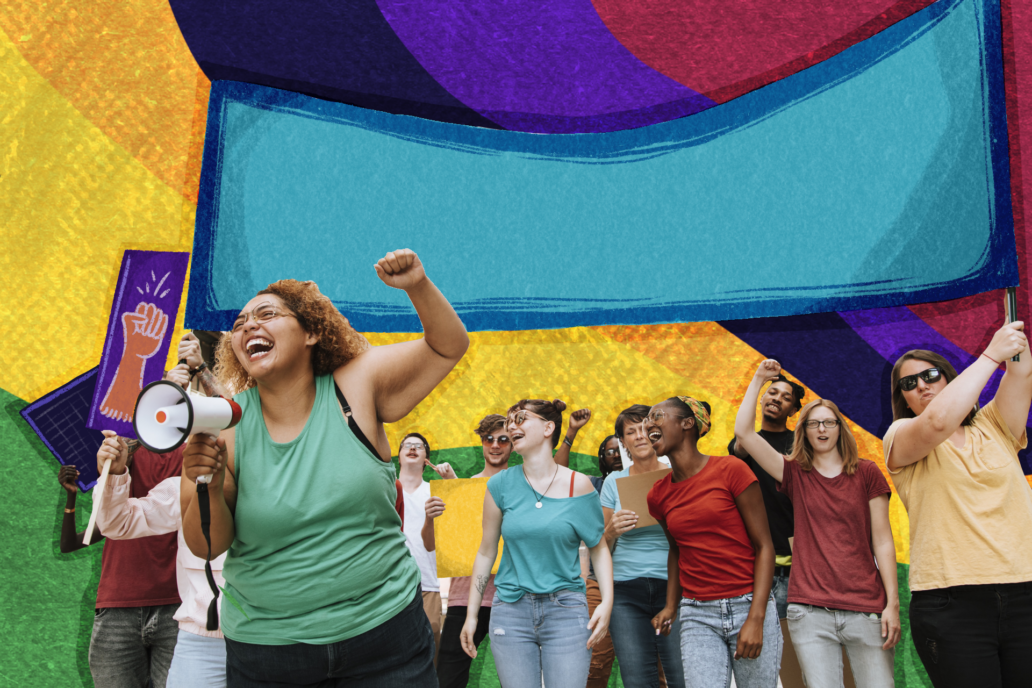Transformation is tricky. Especially when it involves social change. It’s often risky, complex, challenging and messy. However, the potential rewards are bigger, bolder and more impactful than sticking to the status quo. The Levi Strauss Foundation recognized the opportunity for transformative social change within both the social justice space and the traditional grantmaking processes that support it.
So, the foundation set out on a mission to design a new model that would help social justice organizations move from a “1.0” model to a more “2.0” world. In doing so, LSF wanted to redefine the relationship between the foundation and grantees, while also supporting next-generation social justice leaders in their efforts to transform their organizations and thrive in a social media space.
The Pioneers in Justice initiative reflects this vision. This five-year effort, which began in 2010, is helping leaders from five of the Bay Area’s leading social justice non-profits scale their impact by investing in capacity building and supporting new ways of working.
The PIJ program represents a significant investment for LSF. To date, the foundation has invested over $3.0 million in the program, representing almost 20 percent of its overall giving.
“Our sense of purpose was to be the first-movers in helping take these organizations to a 2.0 level,” says LSF’s executive director Daniel Lee. “We wanted to fire on every cylinder and try everything we could.”
5 Lessons Learned from the PIJ Initiative
Last year, at the midpoint of the five-year program, LSF decided it was time to pause, assess, capture and share its emerging lessons with the larger social justice and philanthropic fields. It commissioned social impact expert and author Heather McLeod Grant to develop a case study outlining the initiative to date.
The report, recently published by LSF, examines the progress made and lessons learned along the way. The report contains a variety of key findings about the ways in which 2.0 organizations will operate and adapt. It found 2.0 organizations will:
- Understand social media success requires trial and error. The initial phase of the PIJ program has focused on helping the Pioneers establish a social media infrastructure and presence, and run small experiments to find what works (and equally important, what doesn’t). The Pioneers quickly learned the importance of setting realistic expectations for social media success. Rather than the viral wins some Pioneers expected to see, they’ve learned that success is a “slow burn” achieved through steady progress and reaching the right constituents.
- Try new leadership models. In the past, it was common for executive directors of social justice organizations to stay at their jobs for 20+ years. This created a natural tendency for the leaders to become the “figurehead” for the organization. Now, nonprofit leaders change jobs on average every four to five years, and many are seeking more balance between their personal and professional lives. To better meet their needs, 2.0 organizations need to consider new and more sustainable ways of working, which may include options such as co-leading.
- Embrace internal and external change. Change is perhaps the only constant on which 2.0 organizations can rely. They are called upon to shift the way they think and act. For many, this means becoming more nimble in terms of structure and processes — and not getting trapped in “the way we’ve always done things.”
- Work in more networked ways. To keep up with the pace of change and maximize their value, nonprofits will have to change the way they make connections both internally and externally. This can take a variety of forms, from collaborating in unprecedented ways with “unlikely allies” to engaging more directly with constituents and connecting them to broader advocacy campaigns.
- Use technology to build social movements. Social movements aren’t a new concept, but enabling technologies are helping accelerate the success of these movements. 2.0 organizations have a keen understanding of how to use social networks to target new demographics and markets, and activate existing supports in order to accelerate their impact.
Pioneers in Justice still has miles to go before it’s completed, but already it’s taught the Foundation valuable lessons about how to support social justice leaders and make a greater impact – in short, equipping these Pioneers to navigate modern frontiers.
To learn more about the initiative, including details on key learnings and interviews with the Pioneers, read the full case study, Pioneers in Justice: Building Networks and Movements for Social Change.
Photo credit: University of the Fraser Vally via Flickr CC







